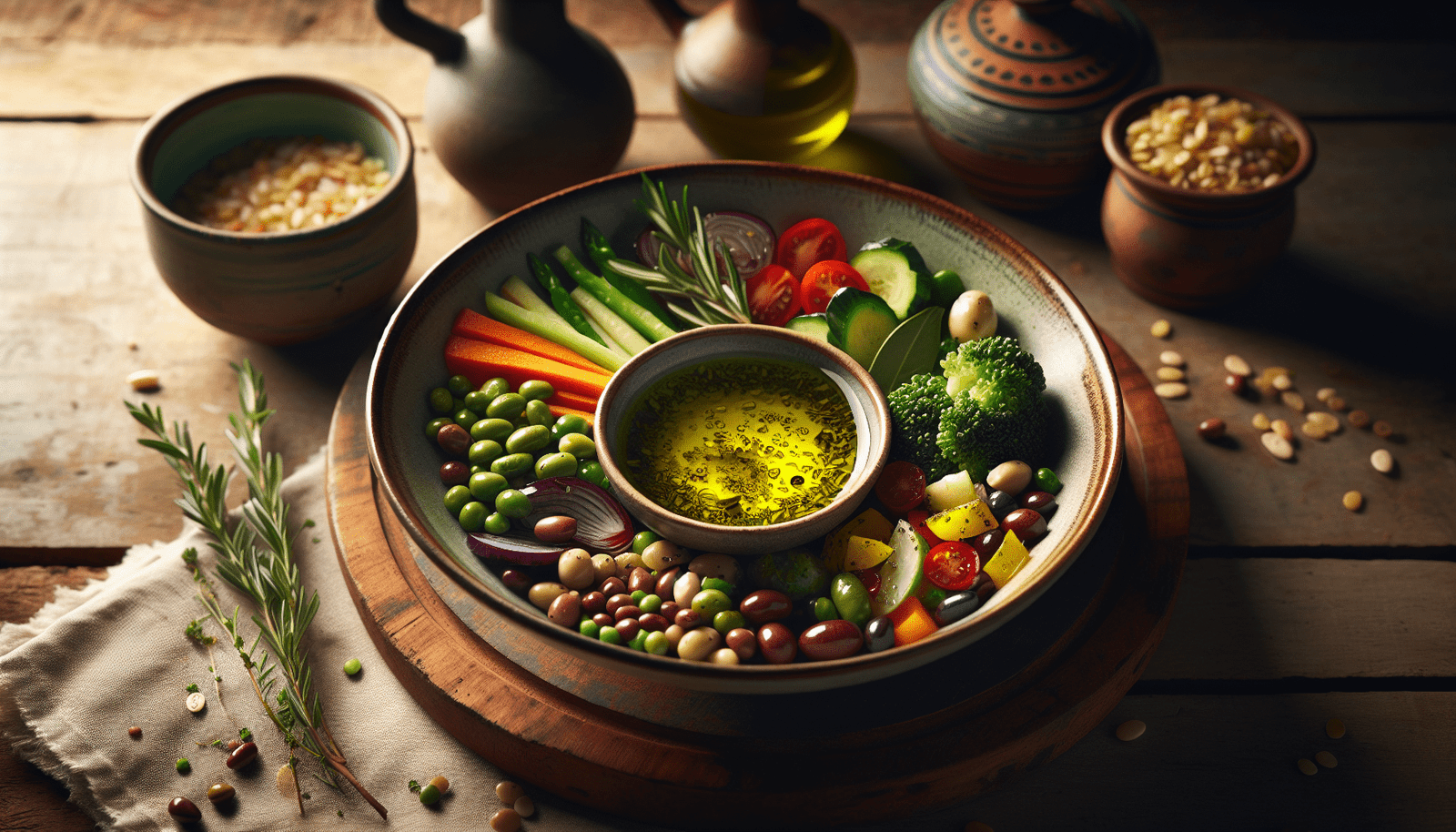
Have you ever wondered why certain foods are restricted in a diet that is otherwise praised for its flavors and variety? One such food is butter, and it’s essential to understand the reasons behind its exclusion from the Mediterranean diet.

The Essence of the Mediterranean Diet
At its core, the Mediterranean diet is a lifestyle that emphasizes whole foods, healthy fats, and a balanced approach to meals. It draws inspiration from the traditional eating patterns of countries bordering the Mediterranean Sea, such as Greece, Italy, and Spain.
The focus is primarily on fresh fruits, vegetables, whole grains, legumes, nuts, and olive oil, among other foods. Knowing this, the question arises: why do we see butter, a staple in many kitchens, missing from this diet?
An Overview of Butter
Butter is a dairy product made by churning cream until it solidifies. It has been part of many cuisines for centuries, appreciated for its rich flavor and creamy texture. While it’s delicious, there are some concerns when it comes to its health implications.
Nutritional Profile of Butter
Let’s take a closer look at what butter contains:
| Nutrient | Amount per 100g |
|---|---|
| Calories | 717 kcal |
| Total Fat | 81 g |
| Saturated Fat | 51 g |
| Cholesterol | 215 mg |
| Vitamin A | 684 µg (76% DV) |
| Calcium | 24 mg (2% DV) |
While butter provides a few essential vitamins, especially Vitamin A, its high calorie and saturated fat content raise some red flags.
The Role of Fats in the Mediterranean Diet
Understanding fats is critical when discussing the Mediterranean diet. This diet promotes healthy fats over saturated fats, which can impact your heart health.
Types of Fats
Fats can be broadly classified into three categories:
- Saturated Fats: Primarily found in animal products. Butter and lard are common examples.
- Unsaturated Fats: Found in plant sources, these are considered “good fats.” Foods such as olive oil, nuts, and avocados fall into this category.
- Trans Fats: Mostly found in processed foods, these are generally considered unhealthy and should be avoided.
Unsaturated Fats: The Mediterranean Choice
The Mediterranean diet largely emphasizes unsaturated fats, particularly monounsaturated fats. Olive oil, a staple in Mediterranean cooking, is a prime example. It not only enhances flavor but also contributes to heart health by promoting good cholesterol levels and reducing inflammation.
Health Considerations: The Case Against Butter
Now, let’s dig into the health reasons behind avoiding butter in the Mediterranean diet.
Impact on Heart Health
Numerous studies link saturated fats to increased levels of LDL (low-density lipoprotein) cholesterol, often referred to as “bad” cholesterol. High levels of LDL cholesterol can lead to a buildup of plaque in your arteries, increasing the risk of heart disease.
Weight Management
Butter is calorie-dense. Just a small amount can add significant calories to your diet without providing much nutritional benefit. For those focusing on weight management, replacing butter with healthier fat sources like olive oil can be beneficial.
Alternatives to Butter
If you’re looking for healthier alternatives to butter that fit into the Mediterranean lifestyle, consider the following options:
- Olive Oil: Versatile for cooking or drizzling over vegetables and salads.
- Avocado: Creamy and rich in healthy fats, perfect for spreads or dressings.
- Nut Butters: Almond or peanut butter can provide taste and healthy fats without the drawbacks of butter.
Culinary Traditions: The Mediterranean Approach
When you think of Mediterranean cuisine, it’s vital to understand the flavors and ingredients that define it. The diet is rooted in a history of food that reflects seasonality and regional ingredients.
Cooking Methods
Mediterranean cooking often employs methods that enhance the natural flavors and nutritional profiles of the ingredients:
- Grilling: Brings out the natural flavors of vegetables and fish.
- Roasting: Enhances sweetness and develops depth of flavor.
- Sauteing: A quick method using olive oil, which provides flavor alongside healthy fats.
Flavor Combinations
Herbs and spices play a significant role as well, with basil, oregano, garlic, and lemon being key flavor agents. These ingredients provide a bright taste without the need for butter or other saturated fat sources.

Cultural Influences
The Mediterranean diet reflects a deep cultural history that is centered around sharing meals, lifestyle choices, and health.
The Importance of Family and Community
Meals in Mediterranean cultures are often a communal experience, bringing family and friends together. The focus is not only on what food is served but also on the connection created through sharing and enjoying meals.
Seasonal Eating
You are encouraged to eat seasonal produce, which means your meals will be vibrant, fresh, and packed with nutrients. This emphasis on seasonal ingredients naturally reduces reliance on processed or preserved foods, often rich in unhealthy fats or additives.
Expanding Your Knowledge: Reading Labels
When navigating food choices, especially with packaged items, it’s essential to read nutrition labels carefully. Being aware of what you are consuming will help you make healthier choices aligned with the Mediterranean diet principles.
What to Look For
When checking food labels, aim for:
- Low Saturated Fat: Keep an eye on the percentage of daily value (% DV) for saturated fat.
- Whole Ingredients: Look for items with minimal processed ingredients.
- Nutritional Benefits: Focus on products high in vitamins, fiber, and beneficial fats.

Practical Tips for Following the Mediterranean Diet
If you’re ready to embrace the Mediterranean diet while understanding the importance of avoiding butter, here are some practical tips.
Cooking Substitutions
- Replace Butter with Olive Oil: Use it in cooking, salad dressings, or as a dipping sauce.
- Use Yogurt for Creaminess: Plain Greek yogurt can serve as a substitute in many recipes requiring creaminess, adding protein without the saturated fat.
- Incorporate Plant-Based Fats: Experiment with nut butters, avocados, and seeds.
Meal Planning
Plan your meals around whole foods and don’t hesitate to involve seasonal produce in your cooking. Consider making larger batches of dishes like vegetable stews, bean salads, and grain bowls.
Health Benefits
Following the Mediterranean diet is not just about what you eat, but also how it influences your overall well-being. Research supports its beneficial effects, including:
- Reduced risk of chronic diseases such as heart disease and diabetes.
- Improved cognitive function.
- Positive impacts on metabolism and body weight.
Join the Conversation
As you transition towards a Mediterranean lifestyle, it’s essential to remember that dietary changes can take time. Be patient with yourself and take joy in trying new flavors and cooking methods.
Share Your Experiences
Whether it’s a dish you’ve tried or a new cooking method you’ve adopted, sharing your experiences with friends or family can enhance your journey. You might inspire someone else to embrace healthier eating habits too!

In Conclusion: Embracing a New Perspective on Butter
Understanding why butter has no place in the Mediterranean diet emphasizes the broader principles of health, well-being, and flavorful eating. Embracing a diet rich in whole foods and healthy fats can enhance your overall quality of life.
Whether you’re preparing a traditional Mediterranean dish or trying something new, remember that the journey is just as important as the destination. So, say goodbye to butter in your recipes and welcome a warm embrace of vibrant flavors and healthful living.